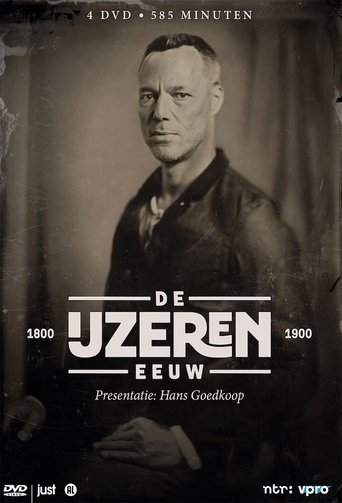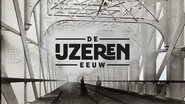










The Iron Century (2015)
In 13 episodes presenter Hans Goedkoop takes us back to the 19th century, in which a country came to be which we still know today - the start of the modern Netherlands.
Writing:
- Hans Goedkoop
Release Date:
Fri, Apr 03, 2015
Country: NL
Language: Nl | Fr | De
Runtime: 45
Country: NL
Language: Nl | Fr | De
Runtime: 45
Hans Goedkoop
Themself
Season 1:

Lodewijk Napoleon gave the Netherlands its identity and set up many important institutions. Hans Goedkoop examines the ambitions plans and silent departure of the Netherlands' first king.

The Netherlands under the reign of King Willem I was a period of investments but also of financial troubles. Hans Goedkoop discovers how one rich and influential widow, Johanna Borski, kept the country from going bankrupt.

In the 19th century, the class society was still a major fact, yet pioneers of equal opportunities dreamed of a better society and some took action. With royal assent, private Dutch initiative bought cheap land in Drenthe province to establish vagrant colonies, where lower class dropouts got another chance. Initially it was all hopeful, optimistic and liberal for its time, but soon the project got into trouble as funds ran out, many of the (in)voluntary recruits -often dumped opportunistically from cities- failed to live up to expectations and a paternalistic regime

The story of W.A. Scholten and how he turned his potato flour factory in the province of Groningen into the Netherlands' first industrial multinational company.

In a time when women are not permitted to work for money and are expected to obey their husbands and stay at home, Betsy Perk stands up for women's rights. Hans Goedkoop chronicles the life of this remarkable woman and her ideals.

Hans Goedkoop investigates the developments of the Rotterdam harbor in the 19th century and the involvement of Jewish tycoon Lodewijk Pincoffs and socialite banker M. Mees.

In the early 19th century Amsterdam was a poor and filthy city. Doctor Samuel Sarphati could no longer bear to see his patients die and devised ambitious plans to clean up the city and give Amsterdam style and grandeur.

After years of oppression catholicism is on the rise in the 19th century. Hans Goedkoop examines the life and work of architect Pierre Cuypers and his important role in this catholic movement.

At the end of the 19th century Enschede is one of the largest textile-producing cities in the world. Hans Goedkoop investigates the working conditions of the weavers and the roles the Van Heek and Stork families played in this industry.

In the late 19th century theoretic physicist Hendrik Lorentz and paleontologist Eugène Dubois made important scientific discoveries. Hans Goedkoop discovers how Lorentz won a Nobel Prize and achieved fame, while Dubois fell into oblivion.

Hans Goedkoop chronicles the life of Abraham Kuyper, founder of his own newspaper, university and political party. His influence is still visible today in the Dutch society, and even in the United States.

Hans Goedkoop visits the former Dutch West Indies, where he investigates the Aceh War and the roles of Dutch general Van Heutsz and local rebellion leader Teuku Umar.

At the end of the 19th century some people question if the industrial revolution has really brought progress. Hans Goedkoop examines the life of author Frederik van Eeden and his quest for a peaceful, simpler existence.


